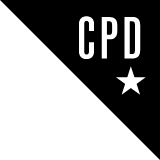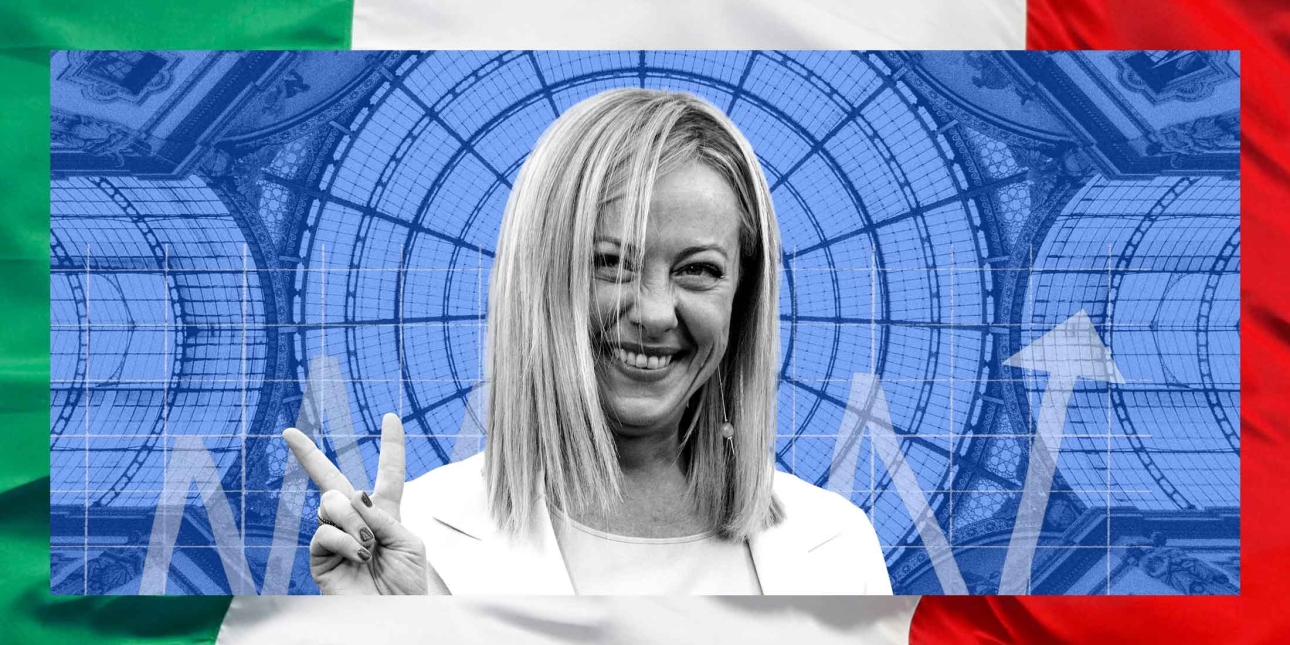Spotlight on . . . Italy
Meloni may not turn out to be as much of a revolutionary as some fear - but that doesn't mean other European leaders can turn a blind eye to her success, says Andy Silvester.
Georgia Meloni formally became Prime Minister of Italy in a time-honoured fashion - being passed a small handbell by her predecessor, Mario Draghi, and ringing it to signal a new era. It was a quaint way to mark what amounts to a political earthquake - one that will be felt right across the continent.
Even in a country of unconventional politicians, Meloni stands out - and not just as Italy's first female prime minister. Her youth was spent in various political factions closely linked to post-Mussolini Italian fascism, and the Brothers of Italy party she founded has been beset by scandal and controversy.
It is easy, then, to characterise Meloni as the first far-right leader of Italy since 1945, with commentators grouping her alongside the taciturn, Eurosceptic leader of Hungary, Viktor Orban. The coalition she leads includes Forza Italia, still run by the ever-more-extraordinary Silvio Berlusconi, whose recent contributions to political discourse was a leaked recording in which he blamed Ukraine for Russia's invasion.
So will Meloni be a thorn in Brussels' side - or even lead Italy out of the European Union? The reality, frankly, looks rather different.
More bark than bite?
Firebrand politicians have a history of tacking towards the centre when power becomes a genuine possibility. Meloni is no different. Indeed, this Eurosceptic Prime Minister may end up being far less of a revolutionary than some abroad fear - and perhaps, than her supporters expect.
"Perhaps the most surprising thing about Meloni's rise to power is not that it happened, but that centrist parties failed to stop it."
Her early cabinet appointments include Giancarlo Giorgetti - no leftie wet, admittedly, as a member of the populist Northern League - as finance minister. Giorgetti is a continuity figure, serving under previous PM Draghi as an economic minister. Foreign minister Antonio Tajani is about as establishment as they come; serving for years in Brussels in a senior role in the European parliament. If it's a revolution, it's with a very familiar cast of characters.
Italy-watchers agree. Luigi Scazzieri, from the research body UK in a Changing Europe, reckons "fear that Italy will tilt away from the west are misplaced", noting Meloni's backing of Mario Draghi's support package for Ukraine after Putin's invasion earlier this year.
A lesson for elsewhere
So if Meloni is unlikely to start tearing down Italy's relationship with the European Union and the wider world, what does it actually mean for Europe? The lesson could be more of an instructive one at the domestic level than the continental.
Italy has its own specific problems, but voters' desire for a fresh start in the form of Meloni comes from the same place that most populist moments grow: a lack of economic opportunity, runaway price inflation and challenged public services. Meloni's campaign offered relatively simple answers to complex problems. It was a PR masterclass far easier for an opposition candidate than an incumbent.
"There are Melonis across Europe offering very simple answers to very complex questions"
So whither Europe's other leaders? As Meloni is set to find out, governing is more difficult than campaigning (as Scazzieri puts it, "a right-wing government may not hold power for very long - it will have to govern Italy during a difficult winter and make difficult political choices) and running a country in the midst of a global crisis is no mean feat.
According to Morning Consult, a data consultancy, approval ratings for European leaders are in the doldrums. The Netherlands' Mark Rutte's has a net -46 approval rating; Olaf Scholz in Germany a -40; even Emmanuel Macron, who won an election this year, sits at -33.
What can turn this around? The simplest answer is an economic rebound, but with precious little sign of that at the time of writing, European leaders are faced instead with a communications challenge - and that may require some impressive trigonometry. There are Melonis across Europe offering very simple answers to very complex questions. How existing establishment leaders frame their communications over the coming years will dictate whether those insurgents follow her lead all the way to the top.
Indeed, perhaps the most surprising thing about Meloni's rise to power is not that it happened, but that centrist parties failed to stop it. Far-right-aligned leaders have been a part of Europe's political discussion for almost two decades, regularly battering more established political movements in European elections and now making waves from Austria to Sweden in domestic politics.
Yet still, the left and the centre are yet to nail down a playbook to combat what at its heart is usually pretty basic stuff: a heady mix of nostalgia, populism, and loosey-goosey promises of better days ahead. Until they do, more Melonis will have their moment in the limelight - and not all will be so accommodating once they get into the top job.
www.cityam.com
.jpg&w=728&h=90&maxW=&maxH=&zc=1)

